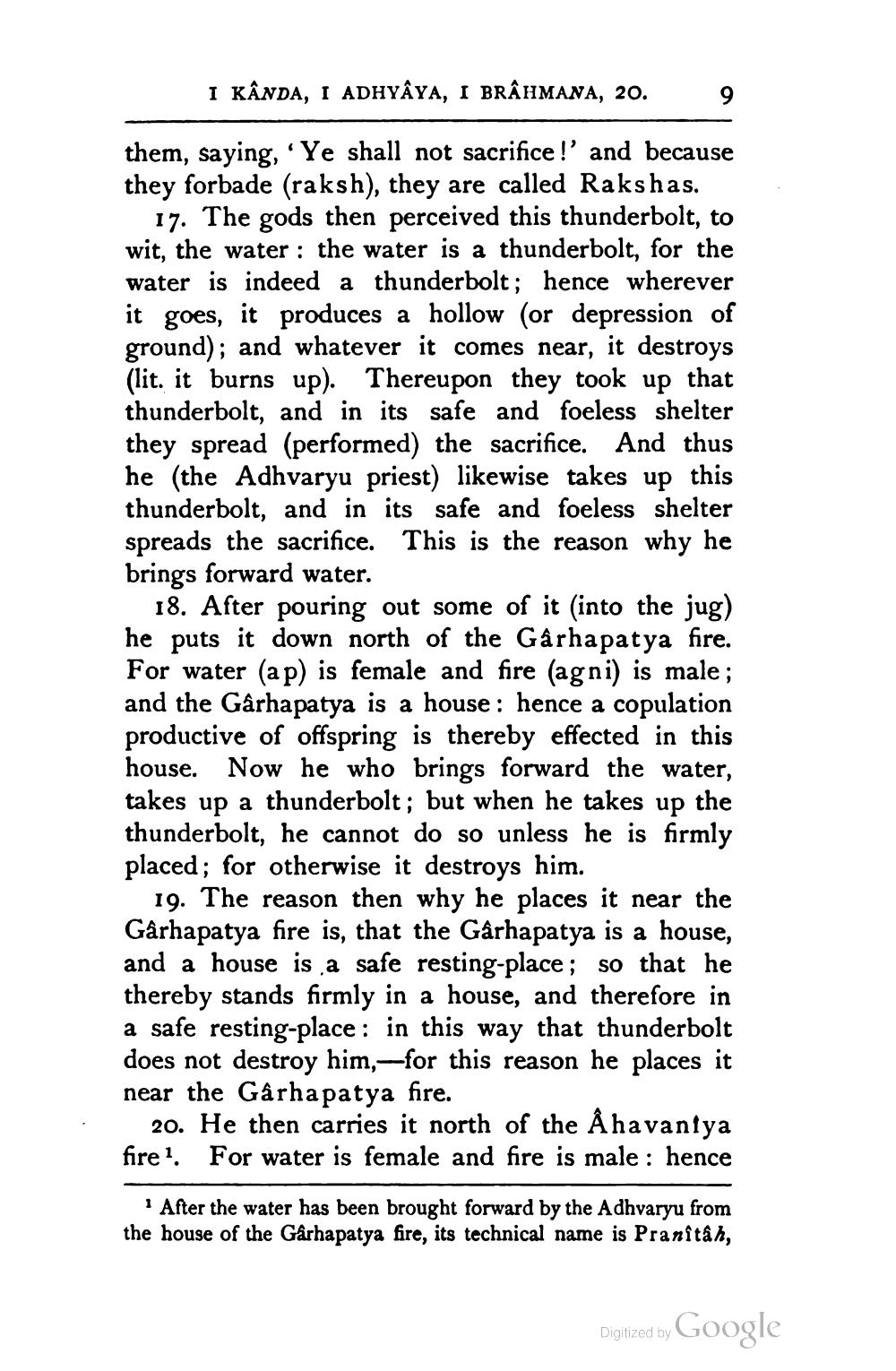________________
I KÂNDA, I ADHYAYA, I BRÂHMANA, 20.
9
them, saying, 'Ye shall not sacrifice!' and because they forbade (raksh), they are called Rakshas.
17. The gods then perceived this thunderbolt, to wit, the water : the water is a thunderbolt, for the water is indeed a thunderbolt; hence wherever it goes, it produces a hollow (or depression of ground); and whatever it comes near, it destroys (lit. it burns up). Thereupon they took up that thunderbolt, and in its safe and foeless shelter they spread (performed) the sacrifice. And thus he (the Adhvaryu priest) likewise takes up this thunderbolt, and in its safe and foeless shelter spreads the sacrifice. This is the reason why he brings forward water.
18. After pouring out some of it (into the jug) he puts it down north of the Gârhapatya fire. For water (ap) is female and fire (agni) is male; and the Gârhapatya is a house: hence a copulation productive of offspring is thereby effected in this house. Now he who brings forward the water, takes up a thunderbolt; but when he takes up the thunderbolt, he cannot do so unless he is firmly placed; for otherwise it destroys him.
19. The reason then why he places it near the Gârhapatya fire is, that the Gârhapatya is a house, and a house is a safe resting-place; so that he thereby stands firmly in a house, and therefore in a safe resting-place: in this way that thunderbolt does not destroy him,-for this reason he places it near the Gârhapatya fire.
20. He then carries it north of the Åhavaniya fire? For water is female and fire is male: hence
After the water has been brought forward by the Adhvaryu from the house of the Gårhapatya fire, its technical name is Pranitah,
Digitized by Google




